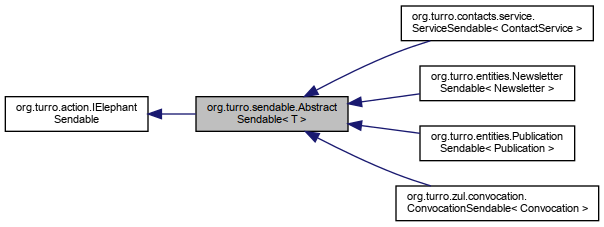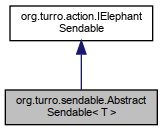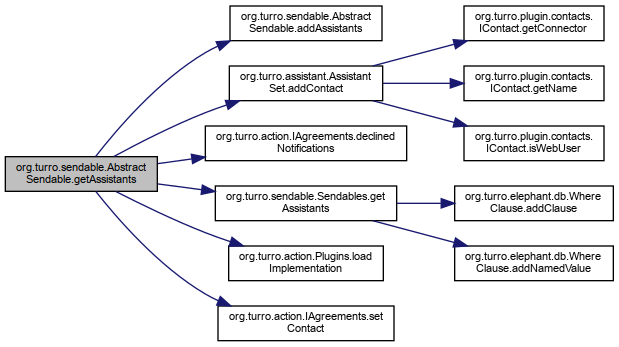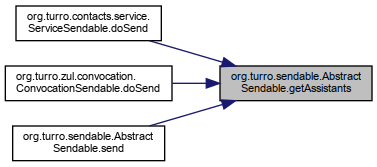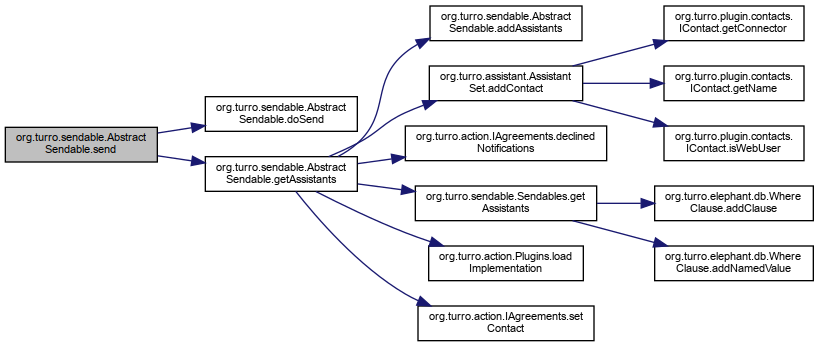◆ AbstractSendable() [1/2]
◆ AbstractSendable() [2/2]
◆ addAssistants()
◆ doSend()
◆ getAssistants()
Implements org.turro.action.IElephantSendable.
Definition at line 65 of file AbstractSendable.java.
66 AssistantSet as =
new AssistantSet();
68 IAgreements agreements = Plugins.loadImplementation(IAgreements.class,
"agreements");
69 for(SendableAssistant sa : Sendables.getAssistants(sendable.
getEntityPath(),
false)) {
70 agreements.setContact(sa.getIContact());
71 if(!agreements.declinedNotifications()) {
72 as.addContact(sa.getIContact(), sendable);
abstract void addAssistants(AssistantSet as, T entity)
◆ getSchedule()
◆ isSent()
◆ send() [1/2]
Implements org.turro.action.IElephantSendable.
Definition at line 79 of file AbstractSendable.java.
84 getDao().saveObject(sendable);
void setSent(boolean sent)
AssistantSet getAssistants()
abstract boolean doSend(Sendable sendable, T entity, IConstructor constructor, AssistantSet assistants, boolean checkSent)
◆ send() [2/2]
The documentation for this class was generated from the following file:
